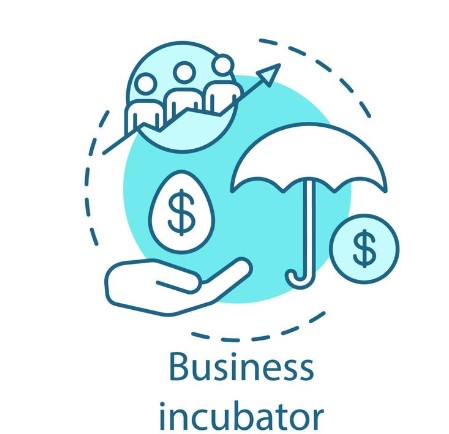Not many know what exactly a business incubator refers to. But the truth is, there are over 1000 business incubators in the US alone. Yes, incubators are all around you even though you don’t recognize them. And once you realize their potential, you won’t be able to stay away from them for long as an entrepreneur either. So, let’s get to the incubator definition and exactly what it is!
An Introduction to The Business Incubator
Keep in mind that business incubators are mainly designed to assist young startups. They help them innovate and grow.
The young entrepreneurs get mentorship, education, workspaces, and a lot more with business incubation. Via these resources, fresh ideas can shape without extensive financial investment. You have to apply to become a part of a business incubator. Additionally, you also have to give a particular amount of time commitment.
Basically, in business incubator programs, new businesses get supplies and workspace at reduced rates. Startups get the opportunity to plan their strategies extensively while simultaneously learning from other professionals. Services that form part of business incubators include,
- Guidance to proceed in the business world
- Teaching practices and professional etiquette
- Opportunity to network
- Help in market research in marketing
- Utilities and operational services
- Help with capital and investment
- Access loans and funding sources
- Mentoring
- Assistance in handling staff
- Business training programs
- Mentoring
What Are Some Examples of Business Incubators?
We started by telling you how business incubators are all around you, but you don’t recognize them. In addition to the business incubator definition, let us prove it to you. Indeed, there are many types of incubators. While they might differ in direction, they all have one goal, to promote growth. Here are a few examples.
Academic Institutes
A lot of business incubators are under universities. You must have noticed some academic centers having affiliations with bigger names. This is an example of business incubation.
Non-Profit Development Corporations
It’s not really surprising that non-profit organizations use incubators to enhance economic development. These programs typically work with companies contributing to public welfare.
For-Profit Property Development Ventures
Large organizations too take part in business incubation, although for different purposes. They view it as an investment opportunity. Sometimes, they are interested in finding partnerships or developing the technology.
Venture Capital Firms
The goal of venture capital firms to establish incubators is mostly investment opportunities. They invest in startups in exchange for something.
How to Apply for A Business Incubator?
Naturally, not every startup manages to become a part of business incubation. There’s a proper admission process. Now that you know the business incubator definition and the ins and outs, here’s what you need to do.
- If you are interested in a business incubator program, you have to apply for it. The application will typically require you to elaborate on your goals, objectives, and experience.
- You have to send them a proper business plan for consideration.
- If your application passes the first stage, you will be called for an interview to discuss it further. At this point, you have to share information about your business and requirements.
- You will be notified of the decision by the program representatives via a call or email.
If you are accepted, you have to start making arrangements. Remember, via the business incubator program, you will get the opportunity to focus all of your time on your business. You will even get mentorship along with networking opportunities. Hence, you will have every available resource needed for your business to flourish within your reach.
A lot of people confuse business incubators with accelerators. Remember, the schedule of incubators isn’t as rigid. Additionally, the program is tailored to suit your business needs. Of course, the process can vary depending on what your company needs. Hence, there’s seldom any time limit with business incubation. You can stay in the incubator for a long time until your business reaches a sustainable level.
Benefits of A Business Incubator
Why are startups so interested in business incubators? Because you gain quite a lot! Here are some of the benefits of applying.
- Since incubation enables you to access a working space at a low cost, you save a lot of money on rent. You will also save a lot on operating expenses.
- Business incubators give you an opportunity to learn and grow. You gain access to mentors, coaches, and training opportunities. This increases the chances of your startup becoming a success.
- With a business incubator, it becomes a whole lot easier to find funding. As you network, you can come in contact with capitalists who might be interested in funding your ideas.
- Incubators improve your focus as you spend time in a structured environment. Hence, you can dedicate all your time and effort to your business. You can also establish some good work habits that will help you for a long time.
Are There Downsides to A Business Incubator?
Yes, there are some problems with business incubators that you must consider. For one thing, there’s a bit of time commitment involved with incubators. Additionally, a lot of incubators offer limited access. It’s not easy to get into a reputable incubator
Is A Business Incubator Suitable For You?
Business incubators are mainly for startups and companies not yet established. Part of the incubator definition is it benefits anyone who thinks they can benefit from mentorship and has limited capital for their startup. Of course, you will have to figure out if the long-term commitment will actually work in favor of your business.










